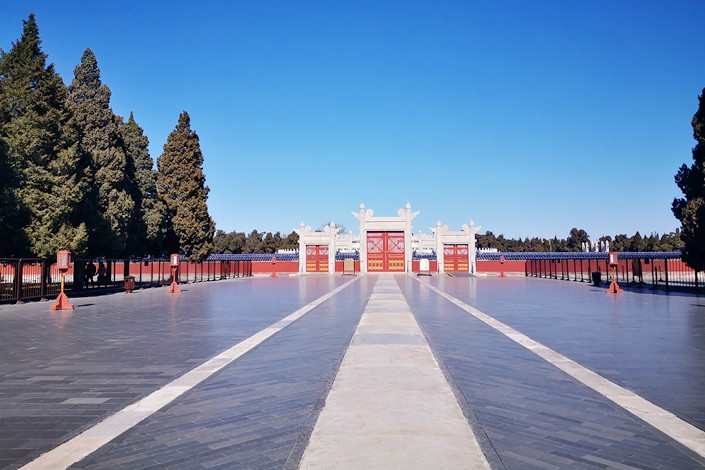Suffering Tourist Sites Start to Reopen

 |
|
|
After weeks of closure to prevent the spread of Covid-19, a growing number of China’s tourist attractions are cautiously reopening as the outbreak eases.
The movement comes as millions of Chinese who have spent much of the last month voluntarily confined to their homes start to venture out more and plan trips for upcoming holidays in April and May on hopes the virus will be mostly a memory by then.
China’s thousands of museums and other tourist areas and attractions, including major destinations like the Forbidden City and restored sections of the Great Wall, began shutting down Jan. 22 as the outbreak sent the nation into a high state of alert. The outbreak also dealt a blow to airlines and other major providers of travel services, as many Chinese preferred to stay at home and lower the risk of infection by avoiding crowds.
But many shuttered sites quietly started welcoming visitors again starting around the middle of last week. More than 300 famous sites are now accepting visitors, a more than ten-fold rise from a week earlier, online travel agent Trip.com estimated earlier this week. Data from another online travel site Tongcheng-Elong showed that as of Monday, about 38.1% of national scenic areas were open.
The cautious resumption of business comes as the virus that has sickened nearly 80,000 and killed around 2,800 in China shows signs of coming under control after strict government measures. The latest data show China confirmed 329 new cases on Thursday, the smallest daily increase in more than a month and the fifth day that the number of newly detected infections has been below 600.
The resumption of interest in tourism produced a mini-peak of visitors at many of the recently reopened attractions over the last weekend, highlighting the challenges such sites will face as they try to mitigate the dangers of crowding. According to a Monday report in the official People’s Daily newspaper, the famous West Lake scenic area in the East China city of Hangzhou saw more than 5,000 people cross one of its best-known bridges over the weekend.
At the same time, the number of visitors returning to Beijing’s famous Fragrant Hills scenic area was big enough to cause traffic jams, a sight rarely seen since tourist attractions were first closed.
 |
The Longmen Grottoes, a popular attraction in Central China’s Henan Province, had reopened on Feb. 22. Photo: IC Photo |
To ensure an orderly return to business and avoid crowds, the Ministry of Culture and Tourism issued a notice Wednesday calling on tourist attractions to reopen but “not in one fell swoop,” saying they should decide based on their own circumstances and needs. The notice called on tourist sites to control the flow of people and prevent formation of large groups in dense settings. It added that attractions should collect people’s names and other information in the event they need to be contacted afterwards for virus-related matters.
Many Chinese may be going to the sites as they look to get outside after a long Lunar New Year holiday spent mostly indoors. Cabin fever after weeks at home has also led to a spike in bookings for upcoming holidays in April and May, amid hopes that life may return to normal as the disease recedes with the arrival of spring.
Tongcheng-Elong said Friday that searches on its platform for flights jumped sharply last week as Chinese people began planning for upcoming holidays. On Feb. 23, searches for flights during the Qing Ming Festival, or Tomb Sweeping Day holiday, from April 4 to April 6, jumped by 138% from a week earlier. Searches for flights during the Labor Day holiday from May 1 to May 5 rose 84%.
Tongcheng-Elong’s hotel bookings also increased by more than 20% last week from the previous week, with activity indicating that travelers are beginning to plan trips for April and beyond.
“With the gradual reopening of hotels and tourism facilities across the country, more and more consumers are beginning to plan their trips after the coronavirus epidemic,” said Tongcheng-Elong’s Chief Marketing Officer Wang Qiang.
Contact reporter Yang Ge (geyang@caixin.com)







